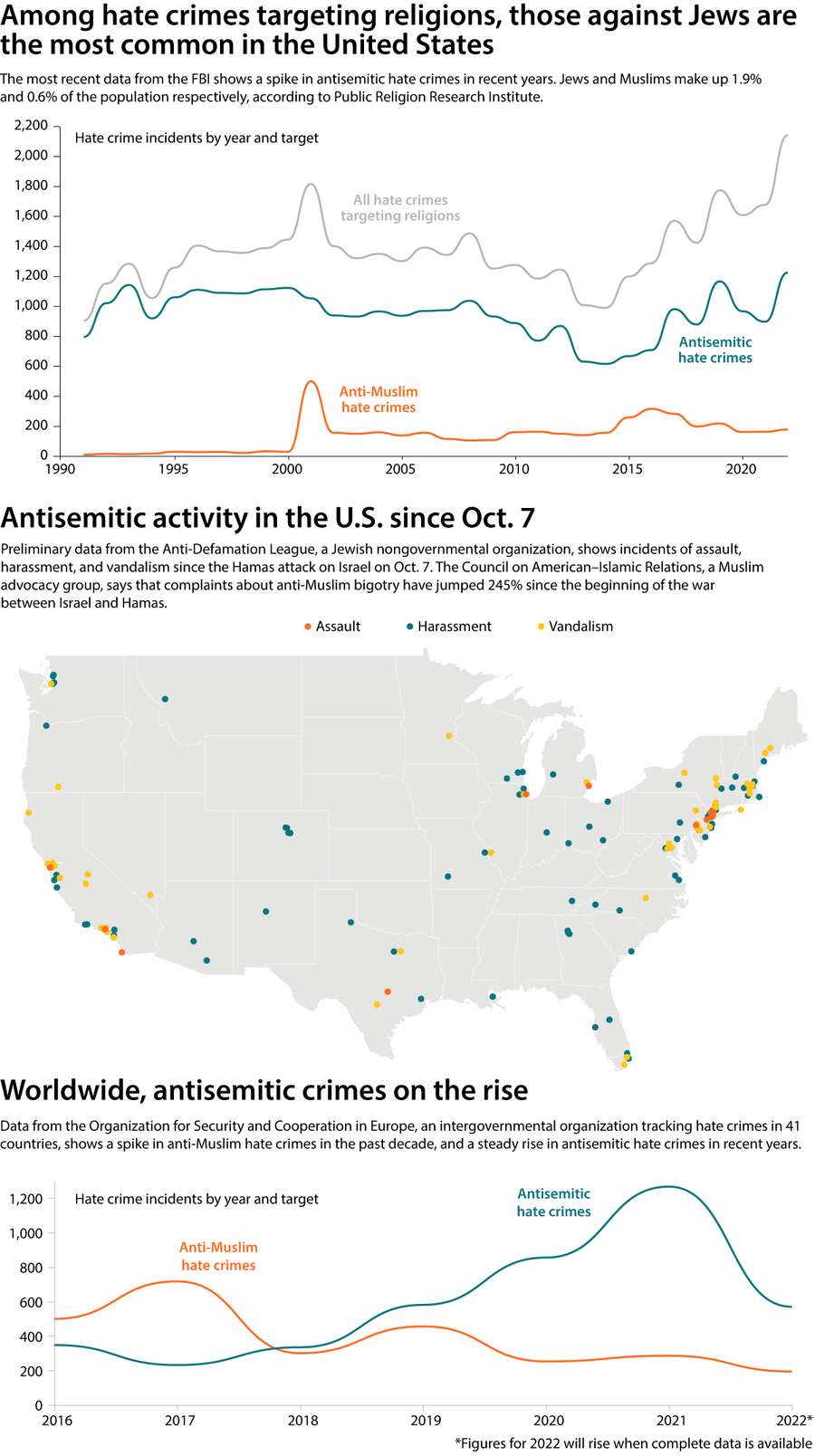Antisemitism on the rise? Three charts on religious-based hate.
Loading...
From graffiti and online threats to physical assaults, antisemitic attacks appear to be on the rise since Hamas’ Oct. 7 assault on Israeli civilians.
On Friday, the Israeli government warned citizens to avoid outward displays of their Jewish identity as antisemitic attacks tick upward around the world, and in Germany, officials responded to rising numbers of antisemitic incidents with warnings that they would be prosecuted as crimes.
Perceived spikes in antisemitism this October also follow a series of record-setting years in the United States. In 2022, the Anti-Defamation League tracked an average of 10 antisemitic incidents a day, the most since its founding in 1979.
Why We Wrote This
A story focused onEarly data appears to validate concerns that the Israel-Hamas war is exacerbating antisemitism globally. But looking at long-term data offers a fuller picture: that religious-based hate crimes have been increasing for years, demanding vigilance from Muslim and Jewish people alike.
That 2022 high is backed by FBI data, which shows multiple spikes in antisemitic crimes in recent years. FBI Director Christopher Wray told a Senate hearing Tuesday that the threat is reaching “sort of historic levels.”
Prior to Oct. 7, the rise of antisemitic incidents was driven mostly by the country’s growing numbers of white nationalist and supremacist groups. Five years ago, a white nationalist shooter killed 11 worshippers and wounded six others at the Tree of Life synagogue in Pittsburgh – the worst act of antisemitic violence in U.S. history.
Violent extremists in the U.S. have targeted both Jewish and Muslim communities in the past, Mr. Wray said, noting also that the recent fatal stabbing of a 6-year-old Palestinian American boy in Illinois – along with his mother, who survived – is being investigated as a federal hate crime. The Council on American-Islamic Relations in Washington says it received almost 800 complaints of anti-Muslim bigotry from Oct. 7 to Oct. 28, the most in eight years and a 245% increase from the same period last year.
“This is not a time for panic, but it is a time for vigilance,” Mr. Wray said. “We shouldn’t stop conducting our daily lives – going to schools, houses of worship, and so forth – but we should be vigilant.”






